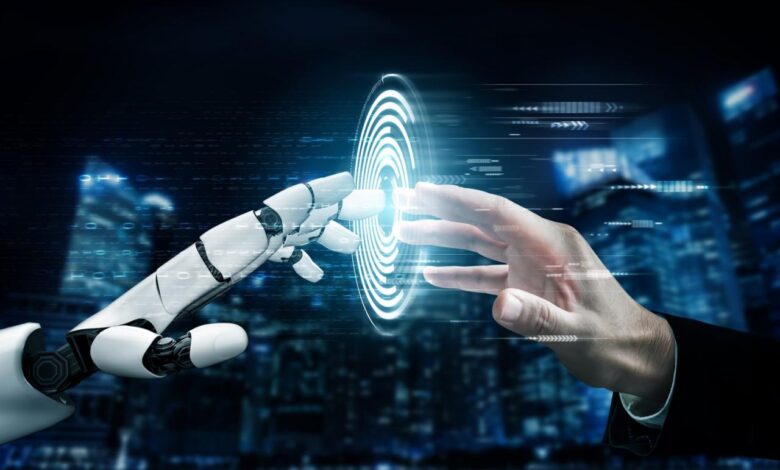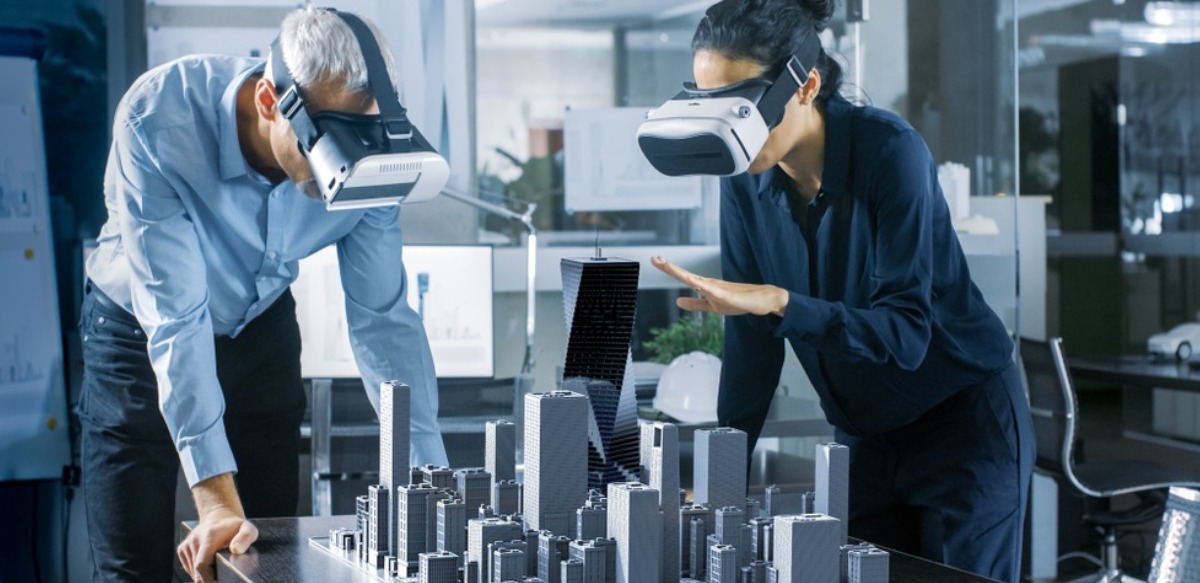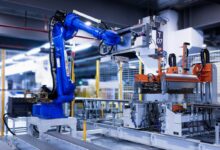Future of Work Rises A New Era of Workforce

The world of work is in the midst of a profound transformation. The traditional 9-to-5 office job is no longer the sole model for professional life. A confluence of technological advancements, demographic shifts, and changing societal values is fundamentally reshaping how, where, and why we work. This isn’t just about a temporary shift to remote work; it’s a permanent revolution that is creating more flexible, decentralized, and purposeful careers. This article will take a deep dive into the key pillars of the future of work, exploring the pivotal role of technology, the evolution of the workplace, the rise of a new workforce, and the challenges and opportunities that lie ahead for businesses and individuals alike.
Smart Tools and Digital Hubs

At the heart of the revolution lies technology. The tools that once connected us are now the very foundation of how we collaborate, innovate, and create.
A. The Rise of Smart Collaboration Tools
Beyond simple video conferencing, a new generation of smart collaboration tools is making remote work more efficient and engaging than ever before. These platforms are powered by artificial intelligence and machine learning, offering a new level of productivity and seamless communication.
- AI-Powered Assistants: AI can now transcribe meetings in real-time, generate summaries, and even create action items, freeing up valuable time for a team to focus on strategic thinking and creativity.
- Virtual Whiteboards: Digital whiteboards allow teams to brainstorm and collaborate visually from anywhere in the world, with real-time editing and feedback that mirrors the experience of being in the same room.
- Real-Time Translation: For global teams, new tools can translate conversations in real-time, breaking down language barriers and making international collaboration more seamless and inclusive.
These tools are not just about replicating the office experience; they are about creating a new, more efficient model of collaboration that is not limited by physical location or time zone.
B. The Future of the Office
The physical office is not dying; it is evolving. Instead of being a mandatory destination for work, the office is becoming a strategic hub for specific activities.
- Collaboration Hubs: The office of the future will be a place for collaboration, innovation, and team-building. It will be a destination for workshops, brainstorming sessions, and social events, not for heads-down, individual work.
- Hybrid Work Models: Most companies will adopt a hybrid work model, where employees have the flexibility to work from home for a few days a week and come into the office for specific collaborative tasks. This provides the best of both worlds: the flexibility of remote work and the benefits of in-person interaction.
- The “Third Space”: The rise of co-working spaces and cafes as a “third space” for work will continue to grow. These spaces offer a flexible, low-cost alternative to a traditional office and provide a new way for independent professionals to connect and collaborate.
The Evolving Workforce
The nature of employment is changing, with a new generation of workers seeking a different kind of relationship with their careers. The traditional “job for life” model is giving way to a more dynamic and purpose-driven approach.
A. The Rise of the Gig Economy
The gig economy is a major driver of this change. A gig worker is a freelancer, an independent contractor, or a temporary worker who is paid for a specific “gig” or project. This model offers several advantages:
- Flexibility and Autonomy: Gig workers can choose their own hours, select the projects they are passionate about, and work from anywhere in the world. This autonomy is a powerful motivator for a generation that values a work-life balance.
- Skill Diversification: The gig economy encourages workers to continuously learn new skills and to take on a variety of projects. This makes them more resilient in a rapidly changing job market and allows them to build a diverse and impressive portfolio.
- The New Entrepreneurship: The gig economy is a gateway to entrepreneurship, allowing individuals to build their own business and client base without the high-risk commitment of starting a traditional company.
B. The “Purpose-Driven” Employee
Beyond financial compensation, a new generation of workers is seeking purpose and meaning in their careers. They want to work for companies that align with their personal values, whether it’s a commitment to sustainability, social justice, or community impact.
- Corporate Social Responsibility (CSR): Companies that have a strong CSR program and a clear mission are more likely to attract and retain top talent.
- Personalized Career Paths: Employees are seeking a new kind of social contract with their employers, one that provides them with personalized career paths, continuous learning opportunities, and a clear path to growth.
- Holistic Wellness: The focus is shifting from simply a paycheck to a more holistic view of employee wellness, including mental health support, flexible work arrangements, and a supportive company culture.
The Road Ahead

While the future of work is a source of great optimism, it is not without its significant challenges that must be addressed proactively by businesses and governments.
A. The Digital Divide and Inequity
The future of work is heavily reliant on technology and digital infrastructure. This creates a risk of a new digital divide, where individuals without access to high-speed internet, a computer, or the necessary digital skills are left behind.
- Closing the Gap: Governments and companies must invest in digital infrastructure and training programs to ensure that everyone has an equal opportunity to participate in the new economy.
- Fair Compensation: The gig economy, while flexible, can be precarious. There is a need for new regulations and a focus on fair compensation and benefits for gig workers to ensure a more equitable system.
B. The Challenge of Management and Culture
Managing a remote or hybrid team requires a new set of skills. Managers must learn how to build trust, foster collaboration, and measure productivity without the traditional tools of in-person supervision. Companies must also work to maintain a strong company culture and a sense of belonging for employees who may rarely see each other in person.
C. Cybersecurity and Data Privacy
A decentralized workforce creates new cybersecurity risks. Employees working from home on their personal networks and devices can be a vulnerability for a company’s data. Companies must invest in robust cybersecurity protocols and training to protect their data and their employees.
Conclusion
The future of work is not a dystopian vision of automation and job displacement; it is a profound and exciting transformation that is creating more flexible, purposeful, and human-centric careers. The technological catalyst of smart tools and digital hubs is not just about replicating the office experience but about creating a more efficient and borderless model of collaboration. The evolution of the physical office into a strategic hub for collaboration and innovation is a clear recognition that the future is hybrid. This is a powerful shift that is already changing the nature of employment, as a new generation of workers seeks a new social contract with their employers, one that prioritizes purpose, flexibility, and a more holistic view of wellness.
However, as we embrace this new era, we must also confront the significant challenges that lie ahead. The digital divide, the need for new management skills, and the critical importance of cybersecurity are not small hurdles. They are fundamental issues that must be addressed through a collaborative effort of businesses, governments, and individuals. The future of work is a journey, and its success will ultimately be measured not by how much technology we adopt, but by how well we use it to create a more equitable, resilient, and human-centric world for all. It is a future where work is not just a place we go, but something we do, and its value is measured not just in dollars, but in purpose, creativity, and fulfillment.



